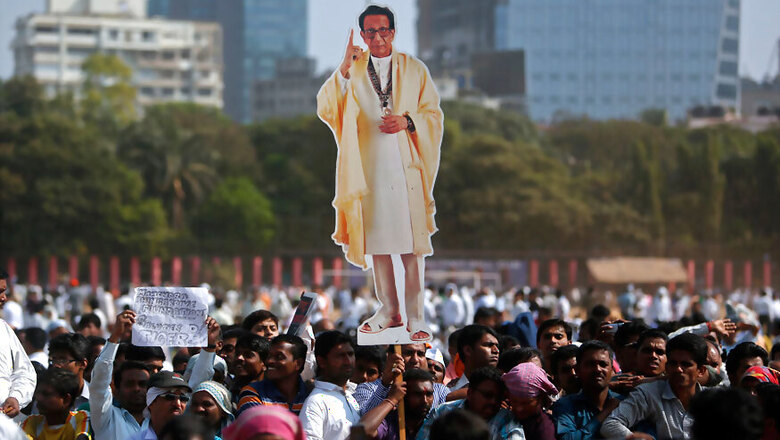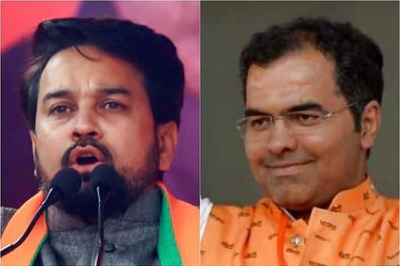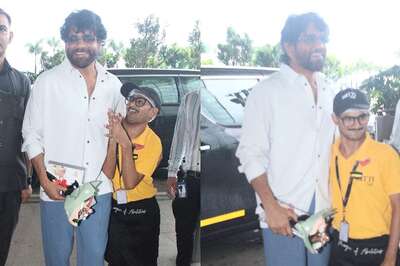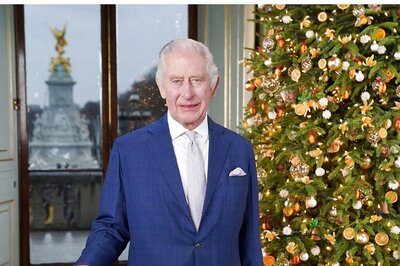
views
Inflammatory and communal speeches are not new additions to the history of Indian elections, and neither are stringent actions by the Election Commission of India curbing such practice.
The Election Commission of India (ECI) today banned Uttar Pradesh chief minister Yogi Adityanath and BSP supremo Mayawati from campaigning for 72 and 48 hours respectively in the wake of their communal remarks at public meetings.
Hours after banning Yogi Adityanath and Mayawati, the Election Commission (EC) continued its crackdown on loose talks during canvassing by political leaders and also barred Samajwadi Party (SP) leader Azam Khan and Union Minister Maneka Gandhi from campaigning for 72 hours and 48 hours, respectively.
However, this type of action has been taken by ECI quite a few times. Prime Minister Narendra Modi during his recent campaign ahead of the Lok Sabha polls refreshed the electorate’s memory with one such incident from 1999.
Shiv Sena’s founder and prominent leader in Maharashtra Balasaheb Thackeray was one of the offenders of Model Code of Conduct who faced an action of a ban by ECI from 1999 to 2001.
In the year 1999, the ECI had debarred Bal Thackeray from contesting election as well as from the right of voting for the next six years. This action was initiated citing his inflammatory and communal speeches, remarked EC while declaring about the action. The ban was lifted in 2001, post which he voted in 2004 Lok Sabha Polls.
The alleged speech was given by the Shivsena founder during Maharashtra state assembly by-elections in 1987. Independent candidate Prabhakar Kunte, who lost the by-election to Shiv Sena candidate Ramesh Prabhu after Thackeray’s alleged speech, had filed a petition in Bombay High Court. Following the court judgement, the EC had ordered the ban in 1999.
PM Modi recently re-iterated this incident saying that back in the late nineties, the Congress had taken away Bal Thackeray’s voting rights by accusing him of seeking votes in the name of religion. But beyond the political spectrum, the ECI, as an independent body, has always had strict regulations in place against the use of caste or religion to garner the votes in any elections in India.
Few such cases of ban from campaigning were recorded in the year 2014 as well. The ECI had banned Amit Shah, Baba Ramdev, and Azam Khan from campaigning during 2014 Lok Sabha polls.
Amit Shah and Azam Khan faced the action after they made statements against the Muslim community during rallies and public meetings in UP. The official statement by EC after the action stated, “These statements ... are being made with the deliberate and malicious intention of outraging the religious feelings and religious beliefs of different classes of citizens of India.” However, the ban on Amit Shah was lifted within the span of a week.
Yoga guru Baba Ramdev came under the EC’s scanner during his campaign for Narendra Modi in 2014 Lok Sabha polls. He was slammed by the EC for ‘malicious comments’ against Congress’ Rahul Gandhi.
While the personal attack got an FIR filed against Baba Ramdev in Lucknow and Ahmedabad, the EC in Uttar Pradesh banned him from arranging camps in Himachal Pradesh. All his programs in Lucknow were also banned by EC during the polls.
The comment he made read, “Rahul Gandhi goes to houses of Dalits for honeymoon and picnic".
Whether India has learnt from its history of inflammatory speeches and the strict EC action that follows will only be known on May 23 after nuances in the run-up to the elections add up to equate successful poll arithmetic.



















Comments
0 comment